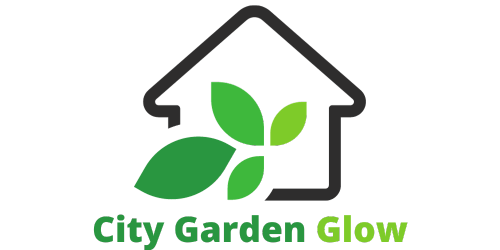Are you ready to embark on your journey as a beginner gardener? Look no further, as we have gathered a list of essential tools that will help you kickstart your garden DIY projects with confidence! From sturdy gardening gloves that will protect your hands, to a durable trowel for digging and planting, these tools are your trusted companions in your quest for a thriving garden. With these essentials by your side, you will be well-equipped to create the garden of your dreams.
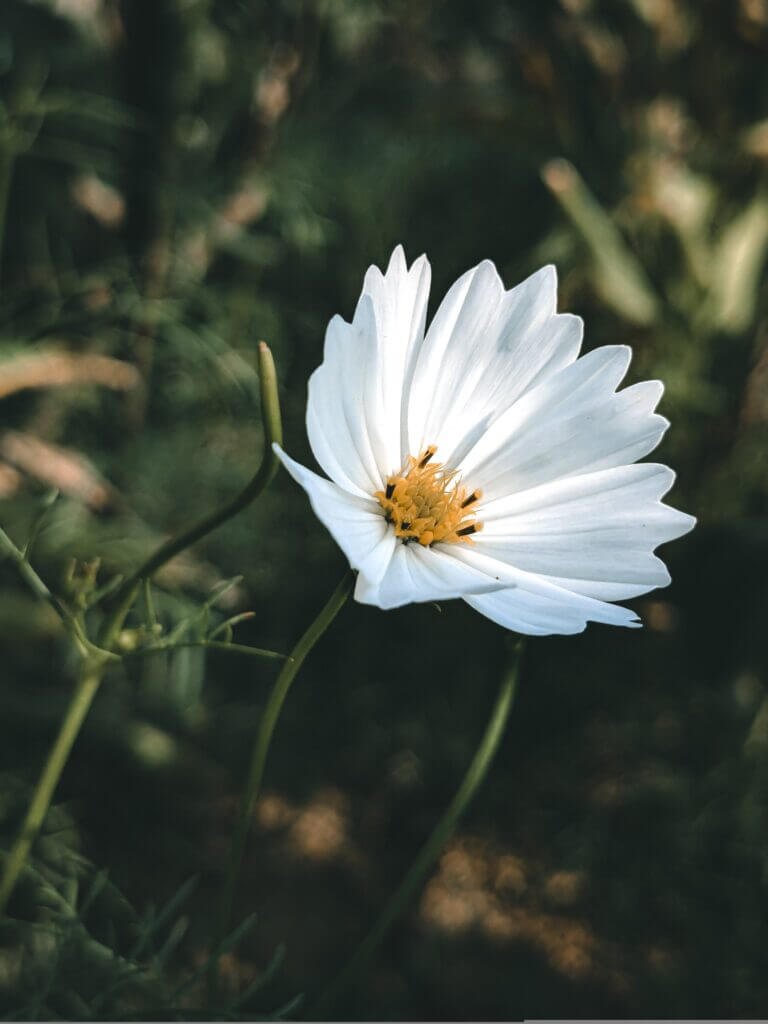
Hand Tools
Trowel
A trowel is a small handheld tool with a flat blade that is curved at one end. It is used for digging small holes, transplanting seedlings, and breaking up clumps of soil. The compact size and narrow blade make it ideal for working in tight spaces and precision planting.
Weeder
A weeder, also known as a weed puller or weed knife, is a hand tool designed to remove weeds from gardens and flower beds. It usually has a long handle and a forked or serrated blade that allows you to dig out weeds from the root. By using a weeder, you can easily remove pesky weeds without disturbing the surrounding plants.
Pruning Shears
Pruning shears, also called hand pruners or secateurs, are essential tools for maintaining the health and appearance of your plants. These handheld cutting tools have sharp blades that can easily trim branches and stems up to a certain thickness. They are perfect for deadheading flowers, shaping shrubs, and pruning small tree branches.
Hand Rake
A hand rake, also known as a garden rake or hand cultivator, is a small tool with multiple metal tines or fingers. It is primarily used for loosening soil, removing weeds, and raking up leaves and debris. The compact size of a hand rake allows you to easily maneuver it around plants without causing damage.
Digging Tools
Shovel
A shovel is a versatile tool that every gardener should have. It has a long handle and a flat blade with a sharp edge. Shovels are perfect for digging large holes, lifting and moving large amounts of soil, and transferring plants. Whether you’re planting trees, installing fence posts, or simply turning over soil, a shovel is a must-have tool.
Spade
Similar to a shovel, a spade is a digging tool with a flat blade and a shorter handle. However, spades usually have a square-shaped blade that is ideal for edging flower beds, slicing through tough roots, and digging precise holes. The sharp edge of a spade allows for more control and precision in your digging tasks.
Garden Fork
A garden fork, sometimes called a spading fork or digging fork, is a tool with multiple tines or prongs that are used for digging and loosening soil. It is particularly useful for breaking up compacted soil, aerating it, and turning over organic matter. The strong and sturdy design of a garden fork allows you to work with ease and efficiency.
Post Hole Digger
If you’re planning to install fence posts, construct a pergola, or set up a mailbox, a post hole digger is an essential tool. It consists of two metal blades or scoops connected by handles. By gripping the handles and thrusting the blades into the ground, you can easily dig deep, narrow holes to anchor posts securely.

Watering Tools
Garden Hose
A garden hose is a fundamental tool for watering your plants, washing off dirt, and cleaning your gardening tools. It allows you to deliver water directly to your plants with ease. Choose a garden hose that is durable, long enough to reach all areas of your garden, and has an adjustable spray nozzle for different watering needs.
Watering Can
A watering can is a traditional and convenient tool for watering small plants, container gardens, and delicate flowers. It has a handle and a spout that allows for controlled water flow. The compact size of a watering can makes it easy to navigate around your garden and ensures that water is delivered directly to the base of your plants.
Sprinkler
For larger areas or when you’re away from your garden, a sprinkler is a useful tool for watering your plants. Sprinklers come in various designs, such as oscillating, pulsating, or impact sprinklers. They can be set to distribute water in a specific pattern, providing even coverage to your lawn or garden.
Cutting Tools
Pruning Saw
A pruning saw is a tool with a narrow, curved blade that is perfect for cutting through thick tree branches or woody stems. It is designed for making clean and precise cuts without damaging the surrounding plant tissue. Pruning saws are particularly useful for shaping trees, removing deadwood, and making larger cuts that pruning shears cannot handle.
Pruning Loppers
Pruning loppers, also known as lopping shears, are cutting tools with long handles and large, sharp blades. They are used for pruning branches and stems that are too thick for regular pruners but smaller than what a pruning saw can handle. Pruning loppers allow for more leverage and make it easier to prune hard-to-reach areas.
Hedge Shears
Hedge shears are specialized cutting tools designed for trimming and shaping hedges, shrubs, and bushes. They have long, straight blades with serrated edges that can cut through dense foliage with ease. Hedge shears come in different lengths and styles, allowing you to achieve precise and clean cuts for a well-manicured garden.
Garden Scissors
Garden scissors, also called pruning scissors or snips, are small handheld tools with sharp blades. They are suitable for cutting delicate flowers, harvesting herbs, and performing intricate trimming tasks. Garden scissors are lightweight and easy to handle, making them an essential tool for precision work in your garden.
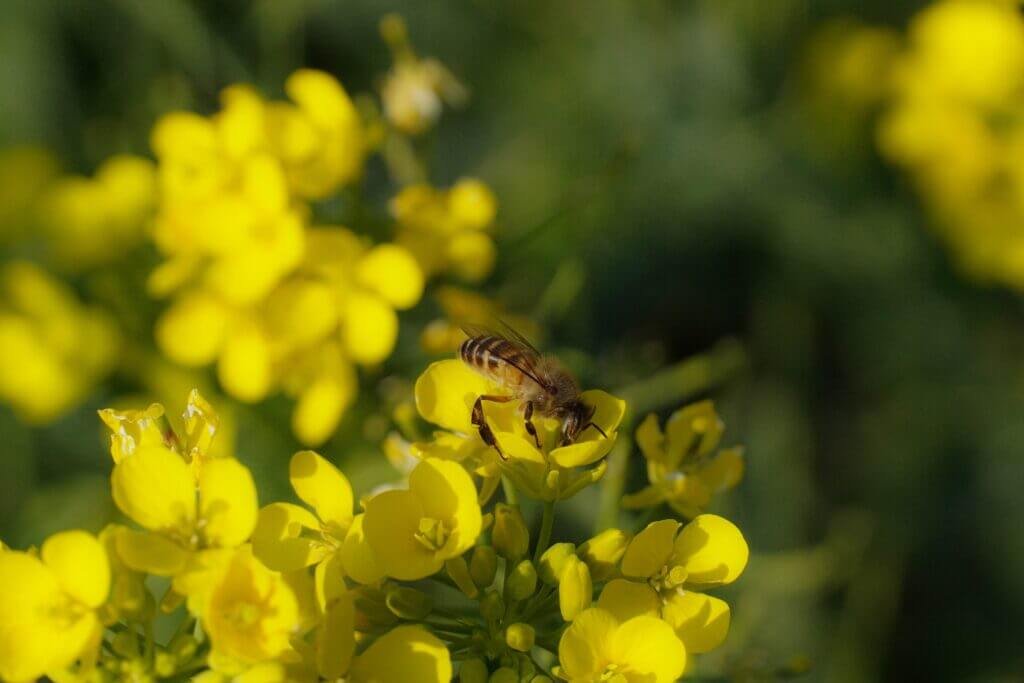
Measuring and Marking Tools
Tape Measure
A tape measure is a basic tool that comes in handy for various gardening tasks. Whether you’re measuring the dimensions of your garden beds, spacing plants, or determining the length of materials for a DIY project, a tape measure provides accurate measurements. Look for a durable, retractable tape measure with both metric and imperial units.
Garden Twine
Garden twine, also known as garden string or plant ties, is a versatile tool for tying plants to supports, securing branches, and guiding the growth of vines. It is essential for training plants to grow in desired directions and preventing them from becoming tangled or damaged. Choose a strong and weather-resistant twine for long-lasting support.
Marker/Chalk
Markers or chalk are practical tools for marking or labeling plants, pots, or other garden elements. They help keep track of plant varieties, planting dates, and specific care instructions. Use waterproof markers or chalk that can withstand outdoor conditions and will not smudge or fade easily.
Safety Gear
Gardening Gloves
Gardening gloves are essential for protecting your hands from thorns, rough surfaces, and harmful chemicals. They provide a barrier between your skin and potential irritants or injuries while working in the garden. Choose gloves that fit well, offer good dexterity, and are made from durable and breathable materials.
Knee Pads
Kneeling or bending down for extended periods can put strain on your knees and joints. Knee pads provide cushioning and support, reducing discomfort and preventing injuries. They are particularly useful when gardening tasks involve prolonged kneeling, like planting, weeding, or working on low garden beds. Look for knee pads with comfortable padding and adjustable straps for a secure fit.
Safety Glasses
Gardening involves various activities that could potentially harm your eyes, such as pruning, trimming, or handling chemicals. Safety glasses protect your eyes from debris, dust, and sharp objects. Choose safety glasses that provide excellent impact resistance and have a comfortable fit to ensure better eye protection while working outdoors.
Sun Hat
Protecting yourself from the sun’s harmful rays is crucial when spending time outdoors in the garden. A sun hat with a wide brim provides shade for your face, neck, and ears, reducing the risk of sunburn and heatstroke. Look for a hat made from breathable materials that provide UV protection and ensure good airflow to keep you cool.
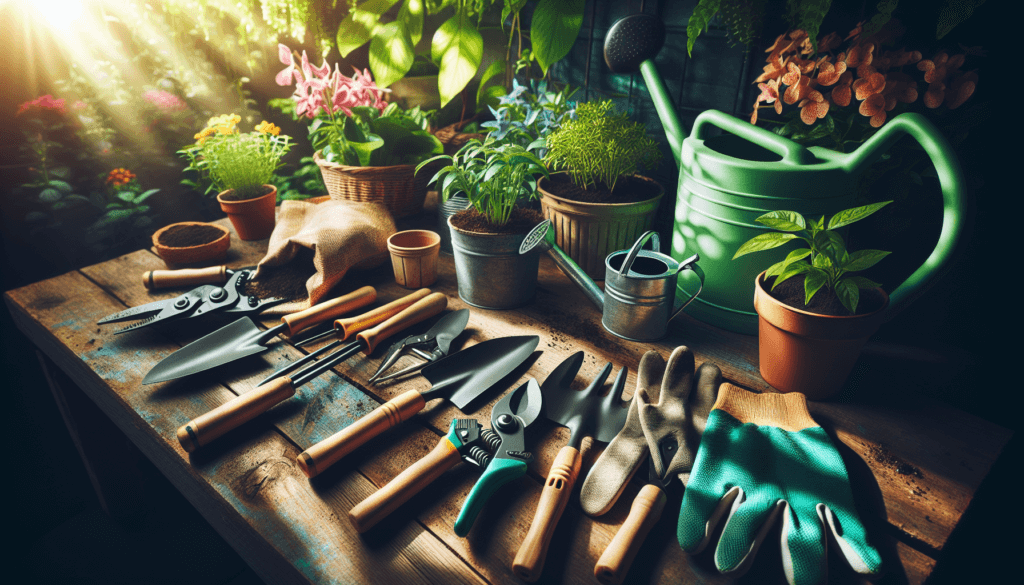
Planting Tools
Bulb Planter
A bulb planter is a specialized tool used for planting flower bulbs quickly and efficiently. It has a cylindrical shape with a sharp, scoop-like bottom that allows you to dig even, deep holes for bulbs. By using a bulb planter, you can save time and ensure proper depth when planting bulbs, resulting in beautiful blooms.
Seed Trays
Seed trays, also called seedling trays or propagation trays, are containers designed to start seeds indoors or in a controlled environment before transferring them to the garden. They are often divided into individual cells or compartments, allowing you to grow multiple seedlings at once. Seed trays help provide optimal conditions for germination and promote healthy seedling growth.
Hand Tiller
A hand tiller, also known as a cultivator or hand hoe, is a tool used to prepare soil for planting, break up clumps, and remove weeds. It usually has sharp prongs or blades that are dragged through the soil to loosen it. Hand tillers are ideal for small-scale gardening projects and make soil preparation tasks much more manageable.
Plant Labels
Plant labels, also called garden markers or plant tags, are used to identify and label different plants in your garden. They help you keep track of plant varieties, planting dates, and specific care instructions. Plant labels come in various materials, like plastic or metal, and can be reusable or disposable depending on your preference.
Propagation Tools
Pruning Knife
A pruning knife is a versatile tool used for various gardening tasks, including propagation. It has a sharp, narrow blade and a comfortable handle that allows for precise cutting. Pruning knives are commonly used for taking softwood or semi-hardwood cuttings, pruning roots, and making clean and precise cuts in general.
Rooting Hormone
Rooting hormone, also known as rooting powder or gel, helps promote root development and improve the success rate of plant propagation. It contains growth hormones that stimulate root growth and increase the chances of successful rooting. Rooting hormone is commonly used when propagating cuttings from plants or growing plants from seeds.
Seed Starter Pots
Seed starter pots, also called seedling pots or peat pots, are containers made from biodegradable materials used to start seeds and grow seedlings. They can be planted directly into the soil, minimizing root disturbance and transplant shock. Seed starter pots provide a convenient and eco-friendly way to nurture young plants before transplanting them outdoors.
Propagating Tray
A propagating tray, also known as a seedling tray or germination tray, is specifically designed to provide optimal conditions for seed germination and plant propagation. It typically consists of a waterproof tray with individual compartments or cells for holding soil or growing media. Propagating trays help maintain consistent moisture and temperature levels, creating an ideal environment for successful propagation.
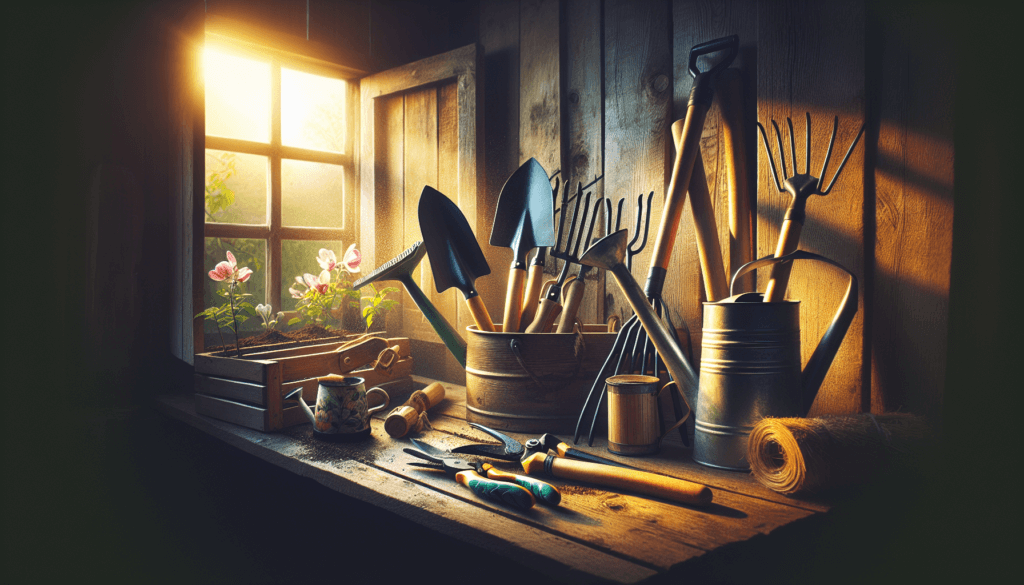
Soil Preparation Tools
Wheelbarrow
A wheelbarrow is an essential tool for transporting heavy materials, like soil, compost, or mulch, around your garden. It consists of a deep, open container supported by one or two handles and a single wheel. With a wheelbarrow, you can easily move large amounts of soil or other garden materials without straining your back or arms.
Garden Rake
A garden rake, also called a leaf rake or lawn rake, is a tool with long flexible tines that are used for raking and leveling soil, removing debris, and spreading mulch or compost. It is an essential tool for preparing garden beds, smoothing soil surfaces, and creating a neat and tidy appearance in your garden.
Compost Bin
A compost bin is a container or structure used for composting organic waste materials, such as kitchen scraps, yard waste, and plant trimmings. Composting is a natural process that transforms organic matter into nutrient-rich compost, which can be added to your garden soil to improve its structure and fertility. Having a compost bin allows you to recycle kitchen and garden waste while benefiting your plants.
Soil Test Kit
A soil test kit is a valuable tool for assessing the health and fertility of your garden soil. It provides information about pH levels, nutrient deficiencies, and other factors that may affect plant growth. With a soil test kit, you can determine if your soil requires pH adjustments or additional nutrients, enabling you to make informed decisions about fertilization and soil amendments.
Storage and Organization Tools
Tool Shed
A tool shed is a dedicated structure or storage area for keeping your gardening tools safe, organized, and protected from the elements. It provides a designated space for storing larger tools like shovels, rakes, and wheelbarrows, as well as other equipment like lawnmowers or gardening machinery. A tool shed helps keep your tools easily accessible and in good condition.
Garden Tool Rack
A garden tool rack is a wall-mounted or freestanding storage solution for organizing and storing your smaller hand tools. It typically consists of hooks or slots where you can hang your trowels, pruners, and other handheld tools. A garden tool rack helps keep your tools within reach, preventing them from getting lost or damaged.
Tool Belt/Apron
A tool belt or apron is a wearable organizer that allows you to keep your essential gardening tools close at hand while working in the garden. It typically has multiple pockets, loops, or compartments where you can store your pruners, gloves, markers, and other small tools. Wearing a tool belt or apron ensures that you have easy access to your tools, increasing efficiency and productivity.
Storage Containers
Storage containers are handy for organizing and storing smaller gardening supplies like seeds, plant labels, twine, or markers. They help keep your gardening essentials in one place, preventing them from getting misplaced or damaged. Look for storage containers with lids or dividers to keep everything organized and to protect your supplies from moisture or pests.
In summary, these essential gardening tools cover a wide range of tasks, from digging and planting to pruning and propagating. By equipping yourself with the right tools, you’ll be well-prepared to embark on your gardening DIY projects. Remember, investing in quality tools will not only make your gardening tasks easier but also contribute to the overall success and enjoyment of your garden. Happy gardening!
